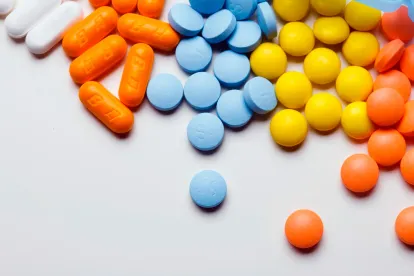The relationship between health care providers and drug and device manufacturers has been a focus of lawmakers at both the federal and state level. While we continue to await final federal regulations implementing the Physician Payment Sunshine Act (federal Sunshine Act), which generally requires disclosure of financial arrangements among physicians, teaching hospitals, and drug and device manufacturers,[1] Massachusetts has refined its requirements governing relationships between physicians and drug and device manufacturers. Amendments to the Massachusetts Pharmaceutical and Medical Device Manufacturer Code of Conduct regulations[2] (the Massachusetts Regulations) broaden the scope of permissible meals and refreshments that may be provided by manufacturers to health care practitioners and clarify issues related to preemption of the Massachusetts Regulations by the federal Sunshine Act. The Massachusetts changes and impending release of final federal regulations underscore the continuing need for drug and device manufacturers to keep their policies and practices up to date to help ensure compliance with the nuances of these requirements.
Modest Meals and Refreshments for Non-CME Events Permitted by Massachusetts Regulations
The final amendments to the Massachusetts Regulations, which are expected to be published and become effective on December 7, 2012, will permit pharmaceutical and medical device manufacturing companies and agents[3] to provide modest meals and refreshments outside of a healthcare setting in connection with non-CME educational presentations that aim to educate and inform health care practitioners about the benefits, risks and appropriate uses of prescription drugs or medical devices, disease states or other scientific information and that occur in a venue and manner conducive to informational communication. “Modest meals and refreshments” are food and/or drinks that, as judged by local standards, are similar to what a health care practitioner might purchase when dining at his or her own expense.
In addition, the Massachusetts Regulations provide that a manufacturer may only provide such modest meals and refreshments if it files quarterly reports with the state detailing all non-CME educational presentations at which such meals or refreshments are provided. The reports must include the location of the presentation, a description of any products discussed at the presentation, the total amount expended on the presentation, and an estimate of the amount expended per participant.
The Massachusetts Department of Health Bureau of Health Care Safety and Quality, which issued the regulations, noted that incorporation of the concept of “modest meals and refreshments,” rather than a specific dollar cap, permits regional variations in costs and is consistent with the PhRMA’s Code on Interactions with Healthcare Professionals and AdvaMed’s Code of Ethics on Interactions with Health Care Professionals.
Federal Sunshine Act Preemption
As of January 1, 2012, the federal Sunshine Act preempts any state statute or regulation that requires a drug or device manufacturer to disclose or report, in any format, the type of information that must be reported under the federal Sunshine Act (i.e., information about payments or transfers of value provided by drug and device manufacturers to physicians and teaching hospitals).[4]
The final amendments to the Massachusetts Regulations, however, continue to require annual reporting of information that is not reported pursuant to the federal Sunshine Act, which includes information regarding payments made by pharmaceutical and medical device manufacturers to covered recipients other than physicians and teaching hospitals (e.g., nurse practitioners, physician assistants, nursing homes, and pharmacists) and also payments made by manufacturers of products that are not reimbursable by federal health care programs (e.g., drugs and devices used only for cosmetic purposes).[5] Thus, all reporting under the Massachusetts Regulations must continue until reporting begins under the federal Sunshine Act. Once federal reporting commences, all non-preempted reports of information not covered by the federal Sunshine Act must be submitted in Massachusetts.
Furthermore, under the final amendments to the Massachusetts Regulations, quarterly reports that detail all non-CME educational presentations at which modest meals or refreshments are provided to health care practitioners will be required even after federal Sunshine Act reporting commences, despite the fact that, as acknowledged by the Bureau, this reporting requirement may be subject to a preemption challenge since such quarterly reports will include the same information that will be reported to CMS annually under the federal Sunshine Act.
Implications
With the Massachusetts Regulations revisions and the impending release of the final federal Sunshine Act regulations, pharmaceutical and medical device manufacturers should gear up for a busy few months of refining and implementing revised policies and procedures and keeping abreast of new changes. In particular:
- Manufacturers may wish to revise their policies and practices to allow the provision of modest meals and refreshments to Massachusetts healthcare practitioners outside of a healthcare setting in connection with non-CME educational presentations and to assure quarterly reporting of information pertaining to such presentations.
- Manufacturers should keep abreast of federal Sunshine Act preemption issues, noting that states interpret federal preemption by the Sunshine Act differently. For example, as discussed above, Massachusetts interprets federal preemption to be effective once federal reporting begins. In contrast, Vermont interprets federal preemption to be effective dating back to January 1, 2012, when the federal Sunshine Act became effective, despite the fact that reporting required under the federal Act has been delayed pending release of final regulations.[6]
In addition, manufacturers, health care providers, policy makers and others should continue to evaluate whether and how effectively the developing federal and state transparency and reporting measures achieve their intended goals of promoting integrity in industry-health care provider relationships.
[1] The Centers for Medicare and Medicaid Services sent final federal Sunshine Act regulations to the Office of Management and Budget for review on November 27, 2012.
[2] 105 CMR 970.000.
[3] Massachusetts law defines “pharmaceutical or medical device manufacturing company” as any entity that:
a) Is engaged in the production, preparation, propagation, compounding, conversion or processing of prescription drugs, biologics, or medical devices, either directly or indirectly, by extraction from substances of natural origin, or independently by means of chemical synthesis or by a combination of extraction and chemical synthesis; or
b) Is directly engaged in the packaging, repackaging, labeling, relabeling or distribution of prescription drugs, biologics, or medical devices;
excluding a health care practitioner, physician practice, home health agency, licensed hospital, licensed wholesale drug distributor, or registered retail pharmacy.
“Pharmaceutical or medical device manufacturing company agent” is defined as a person, who while employed or under contract with a pharmaceutical or medical device manufacturing company, engages in detailing, promotional activities or other marketing of prescription drugs, biologics, or medical devices in Massachusetts to any physician, hospital, nursing home, pharmacist, health benefits plan administrator, other health care practitioner or person authorized to prescribe, dispense or purchase prescription drugs, biologics, or medical devices, who is acting within his/her licensed scope of practice, a licensed wholesale drugs distributor or its representative, or a registered retail pharmacy acting outside of a contract with a manufacturing company. 105 CMR 970.004.
[4] 42 U.S.C. § 1320a-7h(d)(3).
[5] The federal Sunshine Act reporting requirements apply to payments or other transfers of value provided to physicians and teaching hospitals. 105 CMR 970.000 reporting requirements, however, apply to fees, payments, subsidies or other economic benefits provided “covered recipients” in connection with sales and marketing activities. “Covered recipients” are defined, generally, as persons “authorized to prescribe, dispense, or purchase prescription drugs or medical devices in Massachusetts, including a hospital, nursing home, pharmacist, health benefit plan administrator, or a health care practitioner.” Therefore, economic benefits provided by a drug or device manufacturer to a nursing home or pharmacist in connection with sales and marketing activities still must be required under 105 CMR 970.000, notwithstanding federal preemption.
[6] Amended Guide to Vermont’s Prescribed Products Gift Ban and Disclosure Law for 2012 Disclosures, published by the Vermont Office of the Attorney General, available at http://www.atg.state.vt.us/assets/files/Amended%20Guide%20To%20Vermonts%20Prescribed%20Products.pdf.




 />i
/>i

